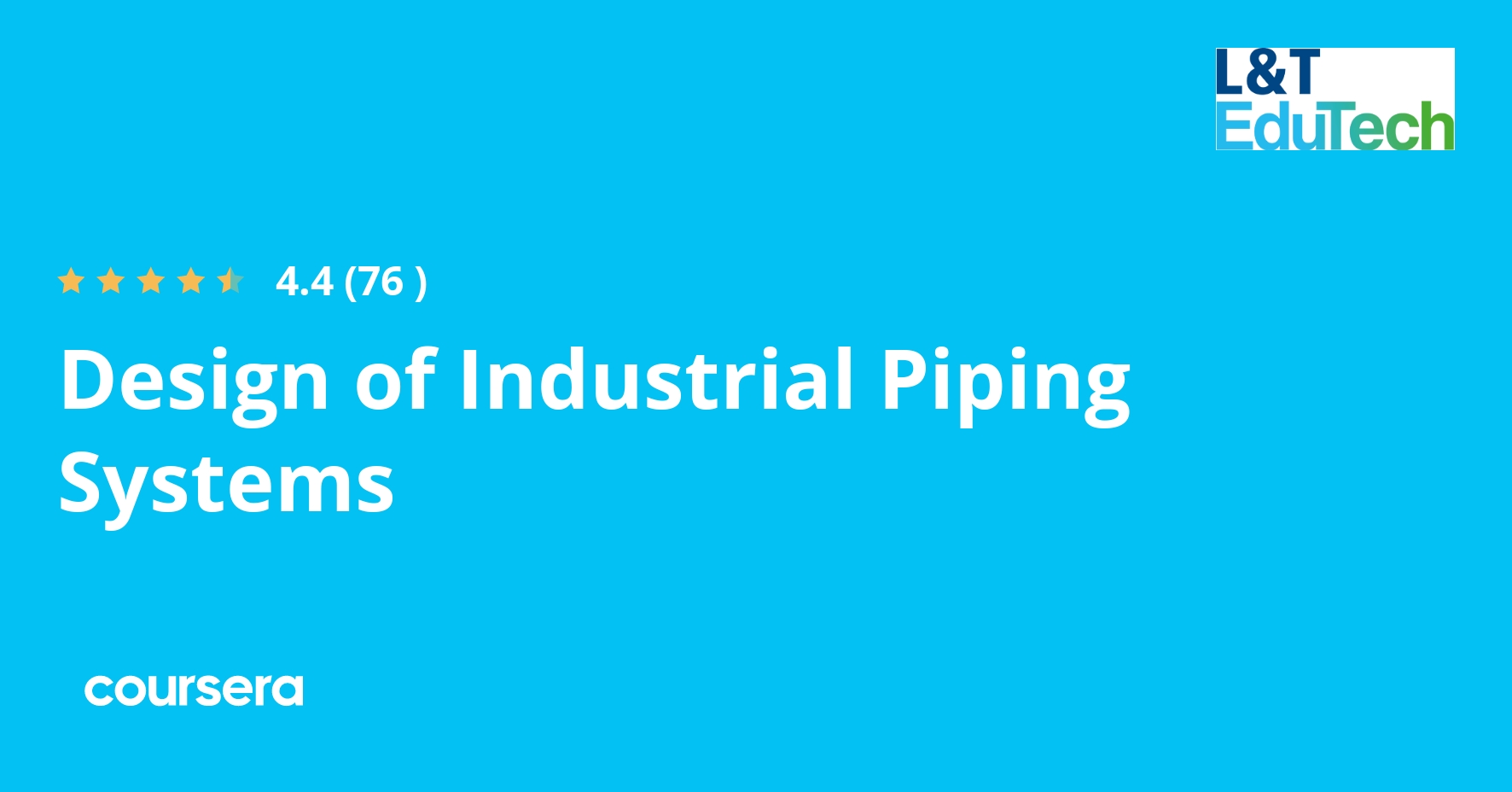Description
Industrial Piping Engineering is a science and a specialized discipline of Mechanical Engineering that is seldom covered in any University curriculum. The science behind piping engineering is extremely important for the reliability of the plant and the safety of the process, personnel, and public. In a typical Chemical or Process Plant, the material cost of piping is around 35% of the initial fixed cost next to the material cost of major equipment (~50%). The field labour cost against the piping goes around 50%. Piping consumes around 50% of engineering man-hours for its design. The importance of piping is far beyond these values. The piping system consists of several piping components. The failure of any one of these components has the potential to shut down the whole plant and, in some cases, it becomes a serious threat to public safety which demands 100% accuracy both in design and erection. With this aim, the course content is meticulously designed to cater to the needs of the Process, Oil & Gas, and Chemical Industries. In a nutshell, the course covers the hydraulics of piping systems subjected to both single and two-phase gas & liquid flows, pipe design, flange types & class, valve types & class, pipe stress analysis, pipe supports, cross-country onshore pipeline construction, and ASME B31.1-Power Piping, ASME B31.3-Process Piping. Applied Learning Project The project is designed based on a practical problem. A certain service with process conditions and preliminary pipe routing is given. Learners can design the piping system to comply with global codes and refer to the relevant standards, perform piping stress analysis using industry-accepted stress analysis software, analyze the induced stresses, modify the pipe routing along with supports,prepare the pipe material specification sheet, develop the pipeline number identification, and predict the total static pressure drop of an optimum pipe routing. Read more

 Microcredentials
Microcredentials  Coursera
Coursera
 Free to Audit
Free to Audit  1 month at 10 hours a week
1 month at 10 hours a week  Intermediate
Intermediate  Paid Certificate
Paid Certificate 
Design of Industrial Piping Systems Specialization
-
TypeMicrocredentials
-
ProviderCoursera
-
PricingFree to Audit
-
Duration1 month at 10 hours a week
-
DifficultyIntermediate
-
CertificatePaid Certificate

